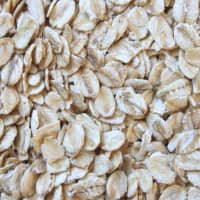Dietary Fiber are substances of [plant] origin present in foods that are not metabolized in the large digestive tract and increase volume of the intestinal content. Chemically, dietary fiber means carbohydrate polymers with a degree of polymerization not lower than 3, which are neither digested nor absorbed in the small intestine. Examples include fruit, barley, oats, lignin, cellulose, pectin, etc. Generous intake of these fibers by diet is associated with a low risk of cardiovascular disease, hypertension, diabetes, obesity, colon cancer and gastrointestinal disorders."[1]
Healing Properties
Antiinflammatory
Short chain fatty acids (SCFA) are a postbiotic fermentation product of non-digestible dietary fiber by microbiota in the intestine which have anti-inflammatory properties[^2]
Microbiome Modulation
Immunomodulator
Short chain fatty acids (SCFA) are a postbiotic fermentation product of non-digestible dietary fiber by microbiota in the intestine which have immune modulatory properties[^2]
Butyrate (butyric-acid) is produced in the colon through microbial fermentation of dietary fiber.
Disease / Symptom Treatment
Chronic Obstructive Pulmonary Disease: (COPD)
Dietary fiber found to protect against COPD.[1:1]
